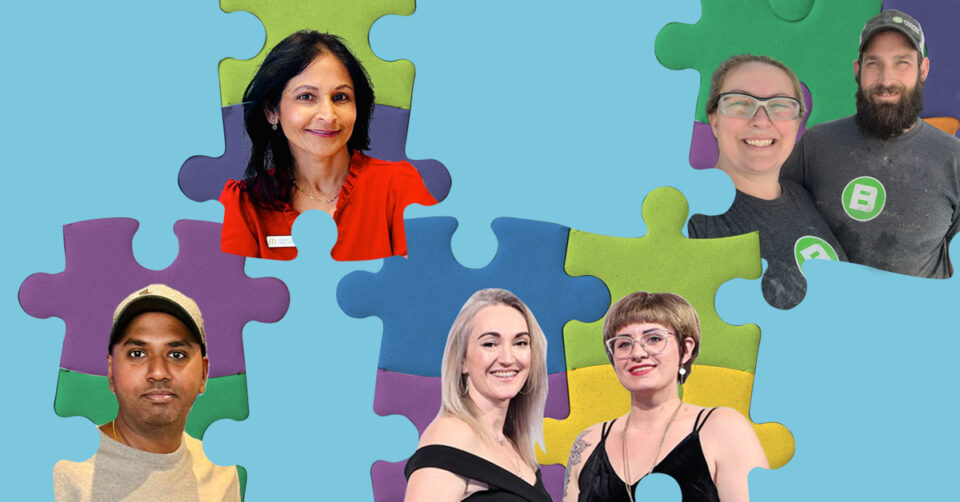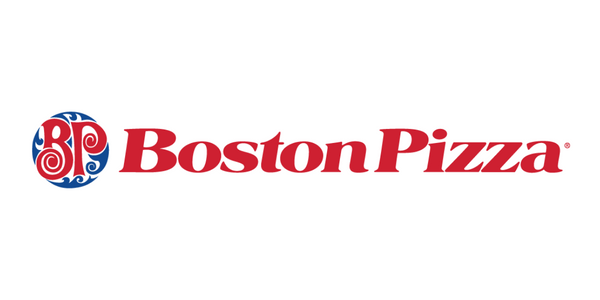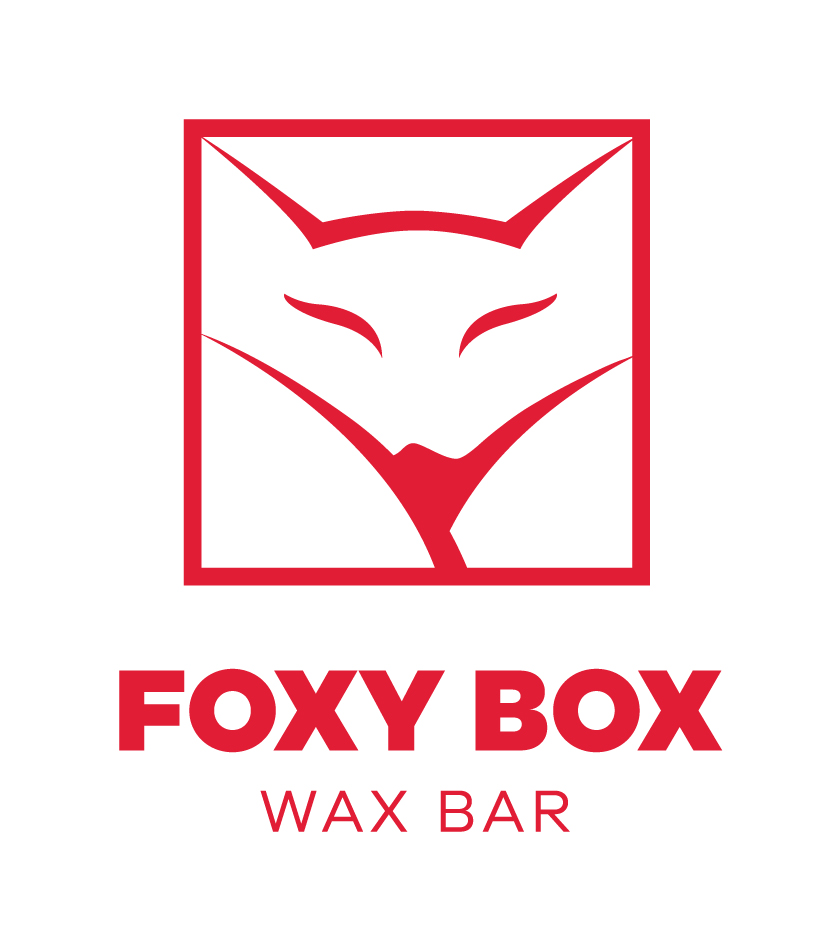Diversity in franchising can mean different things to different people, but above all it represents an array of sectors, backgrounds, and approaches to business. These six passionate franchisees came from all walks of life to prove that franchising is for everyone. Their stories show that with dedication franchisees can find success, regardless of their origin. Use their lessons and takeaways to fuel your own success story.
By Daniel McIntosh and Rachel Debling
Shawn and Chrissy Fried, B-Protek
B-Protek’s annual convention, usually held in a tropical locale, was certainly a draw for franchisee duo
Shawn and Chrissy Fried. But it wasn’t the sole reason they signed on as owners of the company’s Kingston-Belleville territory in Ontario.
As his wife describes, Shawn, a veteran and police officer, was tired of “being the worst part of everyone’s day” and on the precipice of retiring. And though he would receive a pension, the bills just don’t stop coming, especially with a family of five.
So, after driving all the way to B-Protek headquarters in Montreal, Quebec, to discuss their options (“I really grilled them,” Chrissy says, laughing), the duo felt confident enough to sign on the dotted line. It turned out to be the right decision for them. “Honestly, we haven’t looked back,” says Chrissy.
In the beginning, Shawn was the sole worker, which was natural given his military background. “A lot of military members are not used to asking for help,” she explains. “They are like, ‘I got this, it’s fine.’ And they shoulder a lot of that weight on their own, without asking.”
Eventually, he came to her and admitted that he couldn’t do it alone, and soon Chrissy was quitting her job as a dental office manager and putting on her B-Protek hat to help her husband with the organizational aspects of the business. They now have two employees who Chrissy raves about, and they hope that their supervisor, Dominic, will one day take over the business. (“I will cry if he leaves,” Chrissy jokes.)
For Chrissy, B-Protek is emblematic of the rich tapestry of people and sectors that make up the Canadian franchise industry.
“People come [here] from all walks of life,” she points out. “[B-Protek has] someone who was in insurance, someone who sold jewelry previously, there’s me who was in dental […] you have the firefighter and the police officer—we have so many different types of people who have picked this up.
“For me, it’s about bringing talent from across all nationalities, to be able to expand and grow your brand. And now there’s more females than ever going into business for themselves, breaking into a previously male-dominated area. To see that diversity start to come through, it’s just incredible.”
Though the term doesn’t ring true for everyone, Chrissy truly believes that their B-Protek network is a “work family.” Sharing information with prospective franchisees, advising current ones, and leaning on head office for guidance are all parts of their day-to-day—and the Frieds wouldn’t have it any other way.
Arun Ramalingam, Boston Pizza
While most franchisees experience growing pains when going from a single unit to a multi-unit operator, Arun Ramalingam scored a hat-trick: three restaurants in Alberta in the span of a year and a half, one each in Athabasca and St. Paul, and another in Wainwright as an operating partner.
As a former multi-unit owner for Domino’s in central Alberta, he already knew his way around a pie. He also previously owned Subway restaurants, which helped to lay the foundation for the successful operation of three full-service restaurants. He more recently opened a fourth Boston Pizza restaurant in Kindersley, Saskatchewan.
While he had experience running food brands, his previous stints were quick service restaurants (QSRs). The difference between this and his previous ventures, he says, is that QSRs can be run with a small team.
“Compared to Boston Pizza, it’s a different scenario,” says Ramalingam. “You’ve got to deal with 30 to 40 employees in each restaurant. There’s a lot of HR things and payroll.”
On top of the staffing challenges symptomatic to food industries, graduating from QSR franchising to casual dining, which requires more employees and attracts a different kind of clientele including families and group diners, was an additional challenge.
Ramalingam says that the transition allowed him to rely on the franchisor to fill in the gaps. “Boston Pizza International was very supportive. There’s a training team who helped us start training in Vancouver, before even opening in Athabasca. They were there for any things I needed,” says Ramalingam. He also leans on his staff and tools like Boston Pizza’s labour scheduling platform.
While opening four restaurants in the span of a couple years seems aggressive, Ramalingam says his appetite for growth hasn’t dulled. “Maybe we can have another restaurant open next year,” he wonders.
While Ramalingam is the core owner, his wife Priya helps with bookkeeping, on top of raising their two young kids, aged four and two. Ramalingam can’t help but to sing her praises: “My wife is such a great person, and she’s just such a nice woman, and she’s got such a lovely heart. She’s been nothing but a tremendous support for me, always.”
Despite potential downturns, Ramalingam says he wants to continue growing his multi-unit empire, expanding further into Saskatchewan.
As for advice for prospective owners, Ramalingam says to use the franchise’s image and resources wisely and above all, know your business, regardless of the franchise. “Some people I’ve seen […] they’re just doing it as an investment, but you’ve got to be working,” he says. “You can’t just rely on employees all the time. You need to have a deep knowledge of your business so if someone walked out, you know how to run things.”
Stephanie O’Neill and Whitney Elliott-Learie, Foxy Box Laser & Wax Bar
Whoever came up with the adage “don’t mix friends and business” never met Stephanie O’Neill and Whitney Elliott-Learie. The duo has been friends for more than 15 years, and in June 2022, they became business partners when their Foxy Box Laser & Wax Bar opened in Kamloops, B.C.
Like many young workers during the pandemic, O’Neill and Elliott-Learie were burnt out in their careers (a respiratory therapist and educator, respectively). They brainstormed business ideas and briefly floated the idea of returning to school. “Steph had gotten her waxing certificate, just to see if she could do something different,” says Elliott-Learie. O’Neill started her own mobile waxing business right before the pandemic struck, and by chance had noticed a promo video from Foxy Box. She forwarded the 45-minute video to her friend.
“I started watching it, thinking I wasn’t going to be engaged at all, and the vibe of the company blew me away,” says Elliott-Learie. Both women found themselves drawn to the fun, spunky, inclusive culture of the hair removal franchise. “The community, the fact that it’s women-founded, women-owned, women-run […] I called Steph and I said, ‘This is amazing. What do you think about exploring this together?”
The idea of making people feel good about themselves while setting their own schedules was appealing, especially for two young mothers. Fast forward to opening day in June 2022, and O’Neill and Elliott-Learie became the first full-body laser and wax bar in Kamloops.
The duo had limited experience with business ownership, but thanks to their previous lines of work they had naturally developed soft skills like leadership and critical thinking. “But as far as business acumen, we didn’t have any of those skills,” reminisces Elliott-Learie. So, they sought out additional expertise, taking a 10-week business course through Community Futures, an organization focused on providing access to business resources and development, among other offerings.
Translating a long-term friendship into a business partnership isn’t easy, but Elliott-Learie likens it to a marriage. “We went [into] it, eyes wide open about what it means to be in a company together,” she says. “We made sure we wrote that into our contract language. What does it look like if we can’t get along anymore? What does it look like if one of us gets divorced? If one of us passes away?” These were very difficult conversations to have, but they needed to happen for the duo to grow as business partners.
The support they receive from Foxy Box’s head office is also a driving factor in their success. After a year and a half in their franchise, they still have weekly meetings with their franchise coach. In addition, there’s a wide range of women (and even a few men) among leadership and other franchisees to call upon when needed. “They love to share ideas, it’s just a really open place,” says Elliott-Learie. “That was part of the reason we chose this franchise.”
O’Neill adds that personal growth and exploring business opportunities is one of the best things about being a franchisee. “What I say to people, as with any opportunity, is if it fuels your soul, then go for it!”
While the duo still maintains part-time work at their previous jobs, they have bigger goals for their franchise. O’Neill and Elliott-Learie say they would also like to start their own not-for-profit in the Kamloops area and establish their unit as a training hub for Foxy Box.
That drive has carried the duo through one and a half years of business ownership and into increasing press and award success, from multiple “Best of Kamloops” laudations, Readers’ Choice Awards in the former Kamloops This Week, a business excellence award nomination from Kamloops Chamber of Commerce, and most recently, a Franchisee of the Year award from the International Franchise Association. “This has been an incredible journey and we feel so inspired to be where we are today,” says O’Neill.
Reshmi Childs, McDonald’s Restaurants of Canada
Reshmi Childs is a McDonald’s franchisee based in the East Kootenay region of British Columbia.
An immigrant from Fiji, she came to Vancouver as a high-school student. As it happened, her local bus stop was stationed right in front of a pair of Golden Arches, a sight that was totally unfamiliar to her.
“I saw all the time that people got off the bus and went there,” says Childs. “I didn’t know what it was all about because we didn’t have any McDonald’s in Fiji.”
Moreover, girls in Fiji were traditionally focused on schoolwork and homemaking—the very premise of an after-school job was as foreign to her as a Big Mac. One day, as curiosity got the better of her, the 17-year-old wandered into the Vancouver restaurant and was immediately offered an interview. The rest spelled out her future entirely.
“If you know McDonald’s, it’s like climbing up the ladder,” says Childs of her career progression with the brand. “Crew trainer, team leader, second assistant, then I was promoted to first assistant. That was big, because then you can go and see different challenges.”
As she grew with the company, McDonald’s offered the opportunity to bolster her experience through ongoing education, including a trip to Hamburger University, the brand’s training and education headquarters based in Chicago. Those opportunities led her to become a restaurant manager.
After more than 10 years at McDonald’s, Childs left the company in 2002 to pursue a new path as the franchisee of a Chevron gas station and convenience store. Over her 16-year tenure, she owned and operated five locations.
It wasn’t until 2019 when her brother, P.K. Ram, became a McDonald’s franchisee that Childs’ desire to return to the McFamily was reignited. That is when she officially embarked on her journey to become a franchisee.
“If I wanted to go into a franchise business […] there’s so much more to learn, there’s so many things to do,” recalls Childs of her decision. After consulting with her family, she took the position.
Going through this process was challenging at times, but Childs remained confident that the McDonald’s training program and its proven system would equip her for the next phase of her life.
After completing the training program, she was offered the opportunity to purchase her own franchise in
Cranbrook, B.C., about 10 hours away from her home and life in Vancouver. Seizing this chance, she and her family relocated to Cranbrook to operate two restaurants, in Cranbrook and Fernie, from the outgoing franchisee, who retired in April 2021. “Once I was in there, I felt like I belonged.”
“The previous franchisee, who sold it to me, still lives in the community and he is a valued guest. I just talked to him two weeks ago when he came to my new restaurant.” Childs says that although not every challenge you run into has a pre-written answer, McDonald’s values and support system help foster the success of each and every McDonald’s franchisee. The corporate team as well as fellow franchisees are always willing to help.
“Not even a day goes by where I’m not having a conversation with either the previous franchisee or my fellow franchisees in B.C. In addition to that, McDonald’s supports a Women Owner’s Network for women franchisees through its diversity, equity, and inclusion program.”
Childs’ relationship with McDonald’s has only grown, as she opened her third McDonald’s restaurant in Sparwood, B.C., in November 2023.
“You’re going to be successful if you follow all the policies and procedures and promotions and all the fun stuff that McDonald’s has trained us for,” says Childs. “As a McDonald’s franchisee, you are in business for yourself, but never by yourself.”





